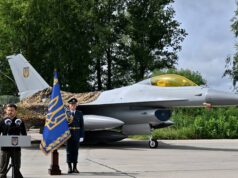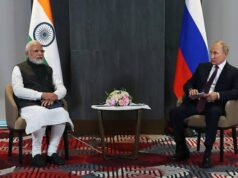India, Saudis, Gulf & Iran: Turbulence Ahead

Prime Minister Narendra Modi visited Saudi Arabia, a second time after 2016, on October 29-30. Besides bilateral parleys he addressed the Future Investment Initiative (FII), known as “Davos in the Desert”. Earlier, Saudi Crown Prince Mohammed bin Salman had visited India in February 2019, on the eve of India’s Lok Sabha elections. The US-Saudi combine obtained a win for the Narendra Modi government after the Balakot airstrike by securing getting Indian Air Force pilot Wing Commander Abhinandan Varthaman’s prompt return by Islamabad. The Modi government’s wooing of Saudi Arabia and the United Arab Emirates (UAE) by establishing close personal ties with their crown princes, the de facto rulers, has multiple facets.
This outreach is neither new nor inexplicable, as India has always favoured good relations with them. First, these two nations host most of the six million-odd Indian Gulf diaspora. Both are vital for India’s energy security and are, particularly the UAE, important trading partners. Strategically, deepened engagement undercuts the financial, strategic and religion-based support that Pakistan has previously drawn to its advantage, especially in manipulating the Organisation of Islamic Conference (OIC) for India-bashing over Kashmir. Finally, Saudi Arabia, despite the crown prince’s unsavoury reputation as a ruthless autocrat, is liberalising, albeit at its own pace. Both nations are diversifying their economies and foreign partners fearing American unpredictability and global opinion against carbon based energy.
However, international relations cannot be conducted in isolated subsets with groups of nations, as regional and global forces create dynamic contexts. A fresh churn is driven by the popular protests on the streets of nations ranging from Chile to Lebanon, Iraq and Hong Kong. In the Gulf and West Asia, the scenario is further complicated by the US withdrawal of troops from the Syrian Kurdish region, which allowed the rebalancing by regional powers and Russia. As the Turkish military intruded into northern Syria to create a 30-km buffer zone along its entire Syrian border, the Kurds sought protection from Russia and the Bashar al-Assad regime, choosing survival over freedom. US President Donald Trump, facing much congressional criticism, including from his own party, in damage control mode sent vice-president Mike Pence to buy time for an orderly withdrawal by the Kurds. But the real diplomacy was led by Russia in Sochi, where President Vladimir Putin hosted Turkish President Recep Tayyip Erdogan. Eventually, the Turks managed to occupy only about one-third of their planned buffer zone, with Russia and Syrian government forces inserting themselves into the rest. In a sense, this opened the path for possible Syrian reconciliation, for which talks have begun in Geneva.
But the surrogate battle between Saudi Arabia and Iran continues and is suspected to be behind the protests in Lebanon and Iraq, where corruption, poor governance and unemployment have been catalysts. Iran feels outside forces are destabilising pro-Iran regimes. In September, the Saudis became top suppliers of oil to India with 830,500 barrels per day, out of total imports of 3.82 million barrels. Iraq fell to number two position, with 821,000 barrels, with the UAE coming next. The implications of the Iran-Saudi Arabian tug-of-war are obvious as any destabilisation of Iraq can hit Indian oil supplies badly.
Why then is India wooing the Saudis so arduously? In play is the need for foreign investment, as Mr Modi noted, of $100 billion to simply create oil and gas infrastructure in the coming decade. The Saudis and Emiratis have committed to investing in Asia’s biggest refinery on India’s west coast. Relations with the Saudis stand upgraded with the establishment of a Strategic Partnership Council at the Prime Minister’s level. India has such councils only with Germany, Japan and Russia. That mechanisms do not always trump geopolitics is obvious from India’s relations with those three nations. German Chancellor Angela Merkel expressed, during her just-concluded visit to India, her discomfort with India’s Kashmir policy, calling it “unsustainable”, as indeed the difficulty of doing business in India. The Germans have also been unhappy with India delaying a Free Trade Agreement with the European Union. German car companies have been scaling back production with the automotive slowdown in India. The German government is also obviously irritated over India wooing neo-Nazi members of the European Parliament’s members, from the Alternate for Deutschland (Germany), called AfD, by inviting them as part of a handpicked delegation to visit Kashmir. Similarly, the Saudis and Emiratis are playing a strategic game to keep India on the hook to distance it from Iran. In the process, they are happy to acquire strategic economic assets.
Thus, formal or “informal” summits have limitations as they cannot instantly overcome Geo-Strategic faultlines. The “Chennai Connect” slogan following the Modi-Xi Jinping summit last month evaporated on October 31 when China strongly criticised the division and downgrading of Jammu and Kashmir into two Union territories. Similarly, the Saudis, and perhaps to a lesser extent the Emiratis, would not abandon their “brotherly” links with Pakistan as that nation remains their last resort for acquiring nuclear weapons, if Iran was to break out towards possessing nuclear weapons. America’s unreliability is now manifest in its sudden dropping of the Syrian Kurds. The Saudis and Emiratis have also been reaching out to China and Russia, with President Putin making a state visit to Saudi Arabia. The Saudis laid on highest protocol, including their Air Force painting the sky with the colours of the Russian flag.
Thus, past Indian leaders, belonging to whichever party, were not wrong in avoiding going overboard with one side in dealing with bickering factions in the Gulf and West Asia. Unfortunately, India has got itself aligned with the Saudi-Emirati combine against Turkey, Malaysia and Iran. The three latter nations have criticised India’s Kashmir policy and India, instead of trying to diplomatically neutralise them, has chosen confrontation and arm-twisting. As a result, while gaining Saudi silence on Kashmir, India now has equally powerful Islamic nations opposing it. When the Afghanistan endgame is upon India, as is soon inevitable, Iran may no longer be available for giving India free access and support in countering the Taliban, backed by China and Pakistan.
The Supreme Court’s verdict on Ayodhya is just days away. The court has to also start looking at the constitutionality and methodology adopted to annul Article 370 in Kashmir. In addition, bleak economic news, rising unemployment and recent electoral setbacks do not seem so far to have humbled the government enough to revert to ruling by consensus and domestic consultation. Theatre still prevails over balanced and thoughtful diplomacy. India’s foreign policy appears headed for testing times as the domestic and regional trends portend turbulence.




